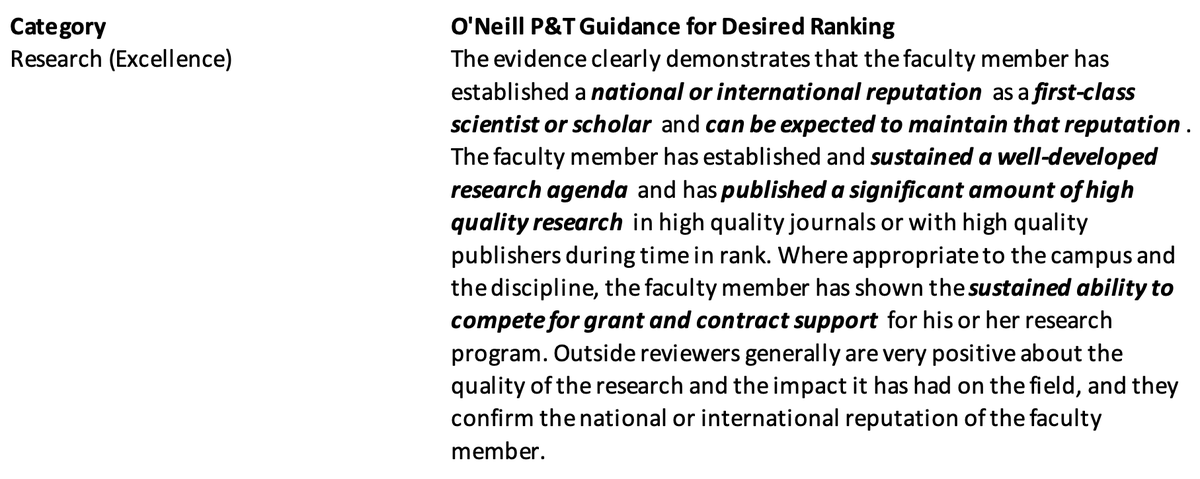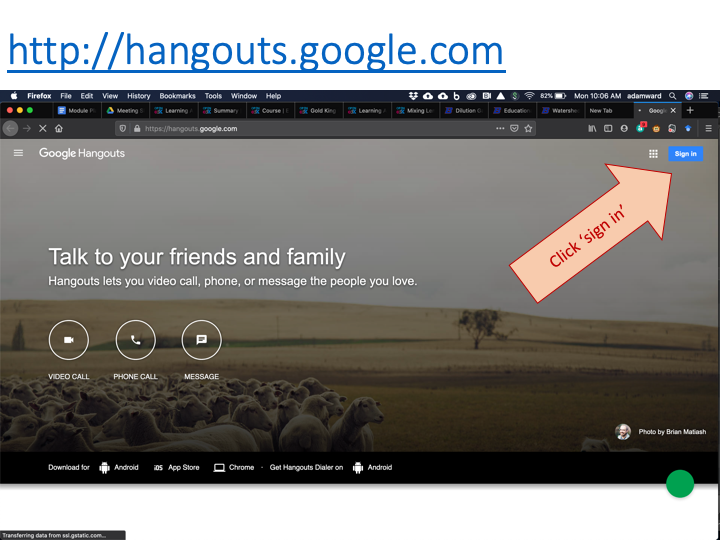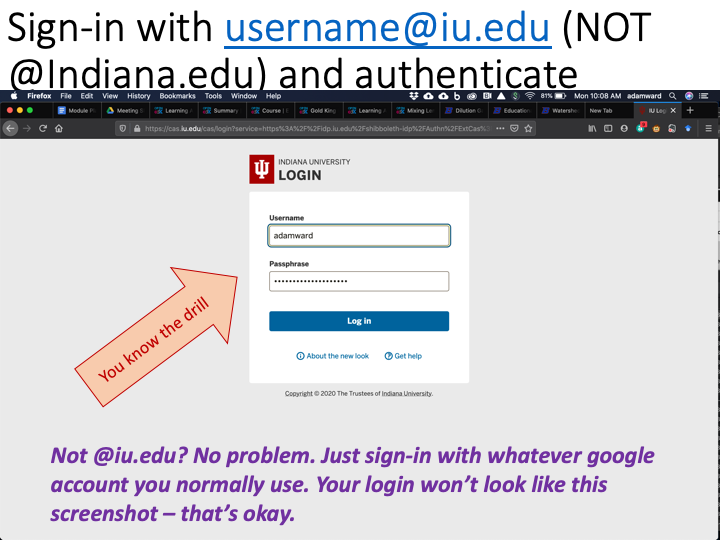
Super excited to highlight this new pub from @CUAHSI Board & Officers on #COVID impacts on researchers in hydrologic sciences. A 🧵.
doi.org/10.1029/2021WR…
doi.org/10.1029/2021WR…
@CUAHSI Given:
(1) COVID-19 impacts on hydrologists (& researchers in general) are widespread, real, & continuing;
(2) Institutional adjustments (e.g., tenure clocks) may not mitigate all impacts of the pandemic;
(1) COVID-19 impacts on hydrologists (& researchers in general) are widespread, real, & continuing;
(2) Institutional adjustments (e.g., tenure clocks) may not mitigate all impacts of the pandemic;
@CUAHSI (3) Hydrologists’ careers & contributions are diverse. Consequently, COVID impacts on research activity will be variable;
(4) Moreover, hydrology values a diverse body of products and outcomes
(image below by @domciruzzi)
(4) Moreover, hydrology values a diverse body of products and outcomes
(image below by @domciruzzi)

@CUAHSI @domciruzzi Aside: See @CUAHSI statement on holistic evaluation of research in the hydrologic sciences for a more comprehensive list of contributions, disruptions, & products valued in our field
doi.org/10.4211/hs.21e…
doi.org/10.4211/hs.21e…
@CUAHSI @domciruzzi Given:
Early evidence of pandemic impacts on hydrologists: Drop in papers submitted to WRR since Q3-2020, an early signal of the lack of new research being completed during the pandemic.
Early evidence of pandemic impacts on hydrologists: Drop in papers submitted to WRR since Q3-2020, an early signal of the lack of new research being completed during the pandemic.

@CUAHSI @domciruzzi More early evidence of pandemic impacts: precipitous declines in submittals to WRR relative to pre-pandemic norms. 

@CUAHSI @domciruzzi NOW FOR THE MOST IMPORTANT PART – HOW DO WE PROCEED AS A FIELD? It is our hope that this comment provides a citable basis to organize discussions and validate the impacts being reported by members of our community.
@CUAHSI @domciruzzi To those applying for positions, promotions, tenure:
Consider the breadth of impacts on your career, using this document as a basis to organize your thinking, particularly across the breadth of contributions and outcomes that exist in our discipline.
Consider the breadth of impacts on your career, using this document as a basis to organize your thinking, particularly across the breadth of contributions and outcomes that exist in our discipline.
@CUAHSI @domciruzzi To those evaluating and hiring:
Evaluations should be written in the context of COVID-19 impact, acknowledging the acute and long-lasting impacts on the candidate.
Evaluations should be written in the context of COVID-19 impact, acknowledging the acute and long-lasting impacts on the candidate.
@CUAHSI @domciruzzi To those evaluating and hiring:
In evaluation letters, consider it your obligation to discuss the hydrology-specific issues related to the COVID-19 pandemic that were faced by the candidate and contextualize these experiences in the discipline.
In evaluation letters, consider it your obligation to discuss the hydrology-specific issues related to the COVID-19 pandemic that were faced by the candidate and contextualize these experiences in the discipline.
@CUAHSI @domciruzzi To those evaluating and hiring:
It is essential to highlight impacts that may not have been ubiquitous across all disciplines to educate review committees whose composition frequently spans a diverse array of intellectual backgrounds.
It is essential to highlight impacts that may not have been ubiquitous across all disciplines to educate review committees whose composition frequently spans a diverse array of intellectual backgrounds.
@CUAHSI @domciruzzi To review committees & senior faculty:
Take seriously the concerns raised by candidates & reviewers when you ask COVID-19 impact statments on research, teaching, mentoring, & service. Consider them with care & intent as impact statements require significant time & effort.
Take seriously the concerns raised by candidates & reviewers when you ask COVID-19 impact statments on research, teaching, mentoring, & service. Consider them with care & intent as impact statements require significant time & effort.
@CUAHSI @domciruzzi To academic & professional leaders:
Use your position to voice support for the inclusion of the full breadth of research products and contributions that are valued in our discipline and consider how COVID-19 impacted them.
Use your position to voice support for the inclusion of the full breadth of research products and contributions that are valued in our discipline and consider how COVID-19 impacted them.
@CUAHSI @domciruzzi To academic & professional leaders:
COVID-19 effects are non-uniform, meaning uniform policies may exacerbate inequalities. Focus on supporting groups that have been especially impacted, & taking care to address individuals' needs rather than applying generic, universal policies
COVID-19 effects are non-uniform, meaning uniform policies may exacerbate inequalities. Focus on supporting groups that have been especially impacted, & taking care to address individuals' needs rather than applying generic, universal policies
@CUAHSI @domciruzzi To funding agencies:
Program officers should continue to proactively engage with their communities to understand pandemic impacts and identify creative ways to mitigate the impacts.
Program officers should continue to proactively engage with their communities to understand pandemic impacts and identify creative ways to mitigate the impacts.
@CUAHSI @domciruzzi To funding agencies:
Future review panels must explicitly consider COVID-19 impacts as research progress, products, and experience by PIs may have been delayed or diminished.
Future review panels must explicitly consider COVID-19 impacts as research progress, products, and experience by PIs may have been delayed or diminished.
@CUAHSI @domciruzzi Finally – while COVID-19 catalyzed this comment, these principles should guide the way we evaluate and value contributions from our field moving forward.
@CUAHSI @domciruzzi Commentary Team:
@BalesJerad, @AditiSBhaskar, @HydroLejo, @gilmore_H2O, @jesusgomezvelez, @FroudeNum, @highlyanne, @safeeqkhan, @SLedford_, @HydroecoLab, @GypsumRosie, @Ashok_Mishra_20, @snownolin, Jeanne VanBriesen, @Hydro_DoctorJ, @margaret_zimmer, + myself
@BalesJerad, @AditiSBhaskar, @HydroLejo, @gilmore_H2O, @jesusgomezvelez, @FroudeNum, @highlyanne, @safeeqkhan, @SLedford_, @HydroecoLab, @GypsumRosie, @Ashok_Mishra_20, @snownolin, Jeanne VanBriesen, @Hydro_DoctorJ, @margaret_zimmer, + myself
@threadreaderapp unroll
@CUAHSI @domciruzzi @BalesJerad @AditiSBhaskar @HydroLejo @gilmore_H2O @jesusgomezvelez @FroudeNum @highlyanne @safeeqkhan @SLedford_ @HydroecoLab @GypsumRosie @Ashok_Mishra_20 @snownolin @Hydro_DoctorJ @margaret_zimmer Whoops, + Greg Characklis also!
• • •
Missing some Tweet in this thread? You can try to
force a refresh








